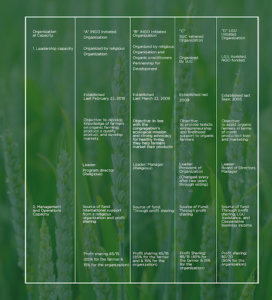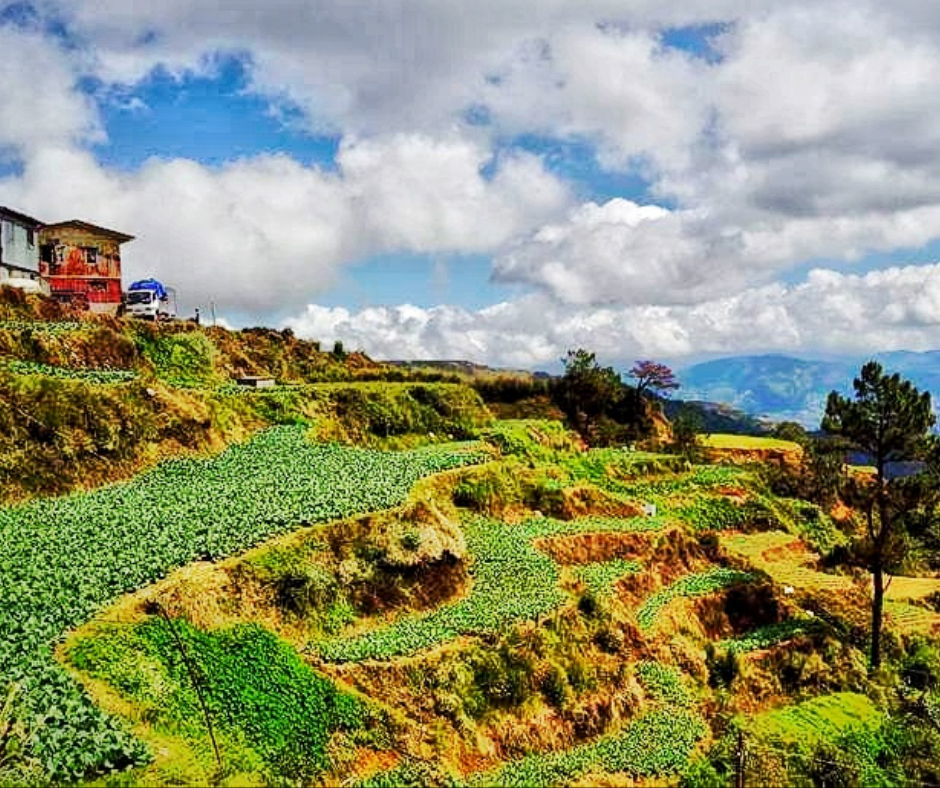The Enderun Research Department recently conducted a study surveying the organizational capacity assessment of several farmers’ organizations devoted to organic farming in La Trinidad, Benguet. The study followed four leading farmers’ organizations and assessed them through the following: Leadership Capacity, Management and Operations Capacity, Community Engagement Capacity, Service Capacity, and Evaluative Capacity. Through this, the study aims to provide a framework for improved capacity building, efficiency, and sustainability for all organizations; and in turn, the individual organic farming practitioners; in the province.
Click here to view the full study from the Enderun Research Department.
Organic farming has been a hot topic around the world in recent years as more and more people are becoming conscious and discerning of what is in the food that they eat. This holds very true for agriculture in La Trinidad, Benguet, where approximately 3,326 individual organic farming practitioners were recorded. Of that number, 3,310 were members of the 50 farmers’ organizations devoted to organic farming.
A diverse series of organizations
Benguet, also known as the “Salad Bowl of the Philippines”, had one of the earliest responses to the Organic Agriculture Act of 2010, an effort pushed by the Department of Agriculture in order to enrich soil fertility and increase farm productivity. What is most encouraging here is that these organizations come from diverse “sources”, a fact that is highlighted when one looks at the four organizations that participated in the study. The four participating organizations covered the following: International Non-Governmental Organization initiated organization, Non-Governmental Organization initiated organization, State Universities and Colleges initiated organization, and Local Government Unit initiated organization.

Click here to view the full study from the Enderun Research Department.
This is noteworthy as it provides organic farming practitioners options, which allows them to become a member of an organization that aligns with their objectives, needs, advocacies, and the like. Of course, the fact that the organizations have distinct differences in terms of leadership, objectives, focus, and mission also means that they would score differently under the criteria of Leadership Capacity, Management and Operations Capacity, Community Engagement Capacity, Service Capacity, and Evaluative Capacity. Naturally, this led to stark differences in the evaluation of current capacity and the solutions for capacity building.
Despite these differences, many of the findings of the study conclude that this diversity is critical to the education and sustainability of organic farmers in La Trinidad, Benguet, as well as provide others some “food for thought” when it comes to strategic remedies in their own organizational capacity building.
Common challenges should be tackled together
Another key finding in the study shows that many of the organizations faced a large number of common challenges. Some of the most pressing challenges include:
- Difficulty in educating farmers
There is a common concern about teaching farmers how to switch from conventional farming to organic farming. This is mainly due to some farmers not entirely embracing the importance of organic farming, which may lead to some giving up halfway or deviating from guidelines. The risk of this is high as making the transition to organic can be a lengthy process, with some taking almost three years to complete the shift.
- Dual/multiple memberships
Most organizations are accepting of farmers who are members of other organizations. However, the study has found that this does sometimes create conflict due to the differences between organizations.
- Advanced age of farmers
A sizable chunk of the members falls between 40-70 years of age. This is concerning to all organizations as this threatens to slow down to supply the right demand. This challenge is also compounded by the fact that most of the younger generation hold little to no interest in farming, creating issues regarding continuity.
- Accreditation of third-party agencies
Unfortunately, organic farmers’ associations require third-party accreditation to be certified as organic. This carries significant financial strains as the associated fees can reach approximately Php 100,000 per 22 farmers and the certification is valid for only a year.
- Distance and location
It is important to note that the organizations hold all their members of equal importance. Each and every farmer is accommodated in spite of location. However, the vast area makes it difficult for assessors and accreditations to properly visit each farm, with some locations even requiring long hikes or drives of up to several hours. This also makes it difficult for members to attend meetings or participate in training sessions as some find the travel too tedious or difficult, opting instead to stay home and miss these opportunities.
Looking toward the future
Organic farming in La Trinidad, Benguet is a booming business, with almost 80 percent of farmers in the area practicing organic farming. The presence of so many organizations that champion organic farming has and will continue to be vital to the success of these farmers–but how effective these organizations will be at achieving these goals boils down to their willingness to continuously assess themselves and adjust accordingly.
The study, therefore, recommends organizations remain open-minded to all possibilities of improvement and seriously consider capacity assessment to be done bi-annually or annually.
Click here to view the full study from the Enderun Research Department.

